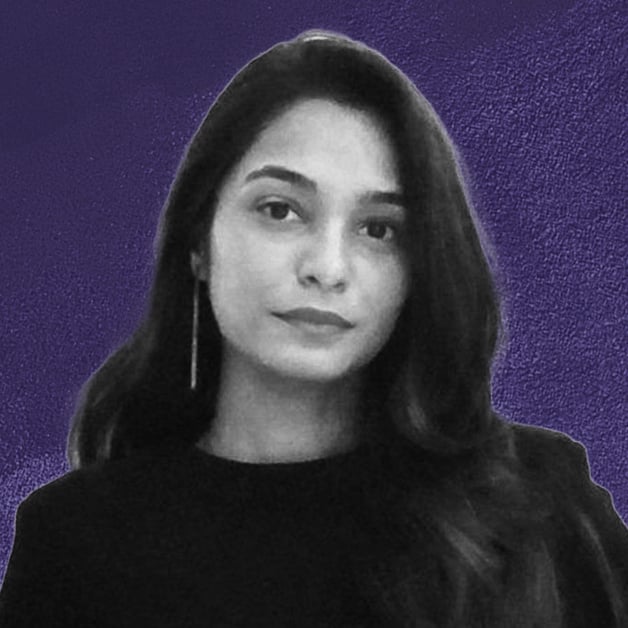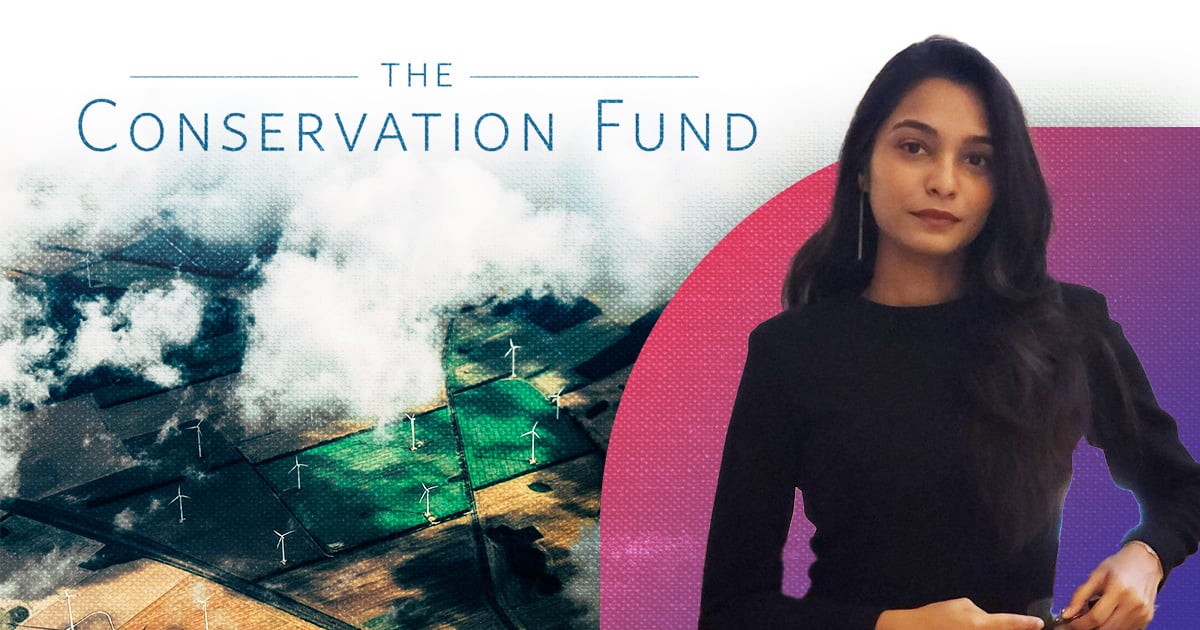
Jamie McCrary
Editor’s note: This summer, we’re charting Kogod students’ internship experiences in this special spotlight series. Here, we’re documenting students’ growth by exploring where they’re interning and why—and how their experiences feed into their longer-term goals post-Kogod.
Growing up in Hyperbad, India, sustainability was a way of life for Sanjana Goel. The now STEM-MBA student practiced it both at home and in business, helping manage eco-centered operations for her family’s construction company.
This summer, Goel is pursuing her passion for sustainability by interning at The Conservation Fund, a DC-based nonprofit that protects America’s lands while strengthening local economies.
As a conservation investment intern, Goel is helping the organization further its mission by optimizing its financial models and identifying metrics that effectively communicate its impact.
“I joined the Fund because of its dual mission: achieving environmental conservation and economic development,” she said. “I’m also very drawn to entrepreneurship and innovation, which the company promotes.”
Working with senior leadership, Goel has the chance to design projects’ processes from scratch—an entrepreneurial approach she hopes to apply to her MBA studies. Eventually, she envisions becoming an entrepreneur who advances sustainability in her community.
Read on for more about Sanjana’s internship experience and her sustainability-focused ambitions for the future.
Kogod School of Business: What inspired you to apply to The Conservation Fund?
Sanjana Goel: I’m attracted to the innovative financial tools they use to conserve land. I'm inclined toward an entrepreneurial mindset and the innovation that comes with it. It was also their impact: They’ve protected around 9 million acres of land valued at $8 billion. This return on investment cannot be easily matched.
What has your internship experience been like so far?
I’m constantly surrounded by expertise. I'm working with people from the United Nations, the World Wildlife Fund, and the World Bank. We are also having conversations with Goldman Sachs and other major firms. My manager and CFO make sure I’m involved in these conversations. I’m super excited about the level of exposure I’m getting to high-level discussions and business decisions.
Can you tell us what you’re currently working on?
I'm working on two major projects: a financial modeling project and a metrics-focused assignment to optimize their impact investing. I’ve never done financial modeling before. Basically, we need to ensure we have a very good financial grasp of how we're going to buy land and give it away. To do that, we need a proper tool that can help us chart different scenarios.
For impact investing, I'm working with the Senior Vice President of the capital investments team and the Senior Vice President of Development to explore different metrics to help us better communicate our impact and how we’re making a difference in society.
If I can help bring this idea to life—or even help them realize it a little later on in the future—I'll be on top of the world.”

Sanjana Goel
STEM-MBA Student, Kogod School of Business
How does this connect to the work you’re doing at Kogod?
One subject that’s really helped me is financial management. For my financial modeling project, knowing how to calculate the net present value of a project and cash flows has helped me a lot. Working on group projects and understanding different perspectives have also been beneficial.
At Kogod, we believe that sustainability is a business philosophy, not just an outcome. How would you describe your business philosophy for sustainability—and The Conservation Fund’s?
When I worked in the private sector, our work was more about the bottom line, but for nonprofits, it is more about impact. How much impact can we have? How much land can we protect, and what sustainability can we advance when we take on a project? We don't have a profit margin; our entire mission is to conserve our lands, biodiversity and humanity around us. My work is not transactional. We’re making money but using it to reach people and make a difference.
What drew you to Kogod’s STEM-MBA program?
When I worked for Deloitte as an auditor after undergrad, I gained a lot of experience I don't think I could have elsewhere—but I didn't see myself doing this for the rest of my life. So, I decided to leave the firm and join my family’s construction business. I was able to use the skills I gained, but I also felt like it was the right time to go back to business school. I wanted to gain more insights and maybe return to the family business and improve it through a different lens.
How do you see your experience this summer informing your next move?
This experience is helping me a lot because I have to start from scratch. I don’t always have a base or foundation for approaching projects. That’s one opportunity that comes with working for nonprofits: They allow you to discover creative processes. I’m still figuring out my end goal, but I see myself as an entrepreneur at least five years from now—maybe doing sustainability in the fashion industry, one area I’m passionate about.
It comes down to giving back to your community and those around you. And part of this is integrating sustainability into your business operations to create a positive impact."

Sanjana Goel
STEM-MBA Student, Kogod School of Business
At Kogod, we believe that we can build a more sustainable world through business. What does building a more sustainable world through business mean to you?
I don’t believe in companies that damage one community while trying to benefit another. For example, if you’re a company that contributes to pollution, try to plant more trees to offset any harm done.
